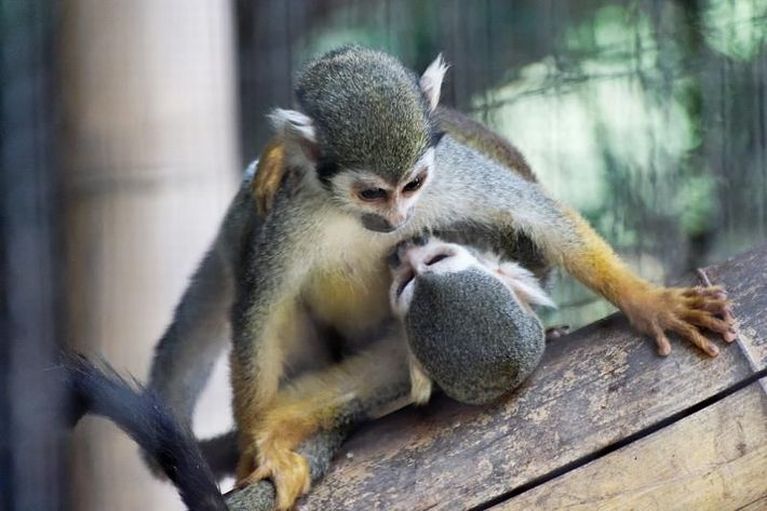|
|
Animal Love
|
There is considerable uncertainty and difficulty related to the interpretation and ambiguity of emotion: an animal may make certain movements and sounds, and show certain brain and chemical signals when its body is damaged in a particular way. But does this mean an animal feels—is aware of—pain as we are, or does it merely mean it is programmed to act a certain way with certain stimuli? Similar questions can be asked of any activity an animal (including a human) might undertake, in principle. Many scientists regard all emotion and cognition (in humans and animals) as having a purely mechanistic basis.
Because of the philosophical questions of consciousness and mind are involved, many scientists have stayed away from examining animal and human emotion, and have studied instead, measurable brain functions, through neuroscience.
The author Marc Bekoff also provided evidence of animals having emotions in his book, The Emotional Lives of Animals. The following is an excerpt from his book:
A few years ago my friend Rod and I were riding our bicycles around Boulder, Colorado, when we witnessed a very interesting encounter among five magpies. Magpies are corvids, a very intelligent family of birds. One magpie had obviously been hit by a car and was laying dead on the side of the road. The four other magpies were standing around him. One approached the corpse, gently pecked at it-just as an elephant noses the carcass of another elephant- and stepped back. Another magpie did the same thing. Next, one of the magpies flew off, brought back some grass, and laid it by the corpse. Another magpie did the same. Then, all four magpies stood vigil for a few seconds and one by one flew off.
|
|









